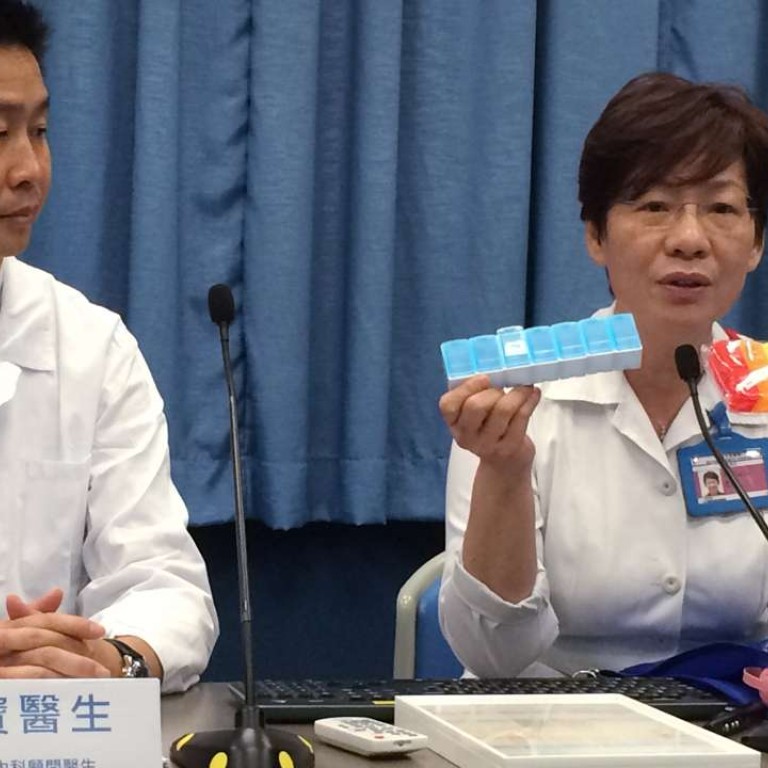
Extra counselling sessions prompt more Hong Kong HIV patients to take medicine on time
Doctors warn that laxness in taking prescriptions can lead to a resurgence of the virus
HIV patients in Queen Elizabeth Hospital are taking drugs on time more often after receiving extra counselling and being given personalised treatment plans.
The drug adherence rate, which measures whether patients are taking drugs on time, has increased to 98 per cent from 83 per cent in 2009 among HIV patients in the Yau Ma Tei hospital.
The extra counselling service was introduced as the annual number of new HIV patients treated at the hospital increased from around 80 in 2003 to 140 last year.
Patients who suffer from the deadly disease have to take lifetime medication to suppress the HIV virus level, but the discipline needed to take drugs on time can be challenging.
They must take three or more types of pills once or twice a day – either every 12 or 24 hours.
“It is not hard to swallow pills. What challenges me is how to fit the [medication habit] into my daily routine,” said Mr Chan, an HIV patient who has been struggling with the virus since 2001.
A twice-a-day dosage pattern, say at 10am and 10pm every day, was a challenge for Chan.
“Sometimes I might sleep till noon on Sunday and miss the first dose ... or fall asleep until midnight after work. Should I then take the drugs or not?” he asked.
Chan managed to control his infection only after joining the counselling programme for a fourth time in 2014, when his virus count soared to 3,200 times above the standard “undetectable” level.
Doctors finally prescribed medication that could be taken only once a day after they realised his real needs.
“Many patients might suffer from depression and feel unmotivated to take pills,” said Rita Chung Wai-yee, a nursing specialist who serves HIV patients at the hospital.
Missing doses could mean rapid deterioration as HIV patients are required to take drugs on schedule at least 95 per cent of the time to suppress the virus effectively.
“Patients might develop drug resistance with some medication if they miss just one or two doses,” said Dr Lee Man-po, a consultant physician in charge of the hospital’s AIDS clinical services.
Since 2009, patients whose HIV virus load exceeds the “undetectable” level after taking medication are asked to attend extra counselling so medical workers can check for poor drug taking habits.
Among the 36 participants, including Chan, five are still being followed up as they have cognitive or emotional problems.

